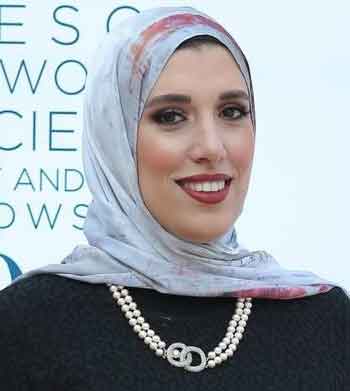The current Covid-19 pandemic has revealed true weaknesses in African healthcare systems, ranging from limited numbers of intensive care unit beds and ventilators, to the lack of competitiveness in innovating new diagnostic tools, vaccines and treatments.
As an Egyptian researcher, it is reassuring to observe that new funds have been offered by the Egyptian Academy of Scientific Research and Technology and the country’s Science and Technology Development Fund to support research on Covid-19 and the production of personal protective equipment, like surgical masks. It is also encouraging to see other initiatives in Africa that aim to support research on Covid-19 or decrease the negative social and economic impact caused by the pandemic.
The World Health Organization (WHO) has also made a massive effort in supporting African governments with Covid-19 early detection through providing testing kits and ensuring the feasibility of early detection in the 47 member states of the WHO African region. The WHO has supported Egypt in conducting up to 200,000 tests, performed in seventeen different labs.
However, funds and equipment are most profitable in the context of extended research and development (R&D) collaboration. And, the fact that researchers have traditionally not worked collaboratively in Africa has now created several problems which hinder the development of novel Covid-19 diagnostic tools and therapeutics.
Very few labs across the continent are equipped to support research on highly infectious agents, which means that even researchers who have smart new ideas will not always be able to act on them. In addition, not all research labs host advanced technologies that are needed for research progress. Therefore, a need for collaboration arises where labs with advanced facilities and researchers with innovative ideas can come together.
It is also not common for African research labs to have connections with industry. This gap between research and industry hinders the transformation of research findings into marketable products. The integration of industry is essential in meeting the demand for manufacturing technologies in short supply, such as ventilators and personal protective equipment. It is also needed for the development of vaccines and treatments.
International R&D collaboration will be key to combating this pandemic, and we researchers have a key role to play in making it happen. In 2019 I started an initiative with five other Next Einstein Forum (NEF) fellows called Scientific African Access, or SciAfriAccess for short. The founders are from Egypt, Malawi, Tanzania, Sudan and Zimbabwe. We are taking steps towards officially launching the initiative, which we believe would be really helpful at this critical time.
The main aim of SciAfriAccess is to create a network to help the broader NEF community of scientists overcome the barriers they face in accessing the scientific equipment they need. The second aim is to create an inventory of scientific instruments on the continent, which then can be made available for students and researchers. The initiative also aims to nurture collaborations.
Similar initiatives would be fruitful now more than ever. To make the best use of the new funds and equipment provided on the continent, African scientists need to come together and share expertise and equipment. Establishing multi-disciplinary collaborations that integrate the expertise of virologists, physicians, biochemists, molecular biologists, pharmacists, engineers and other disciplines is the way forward.
Such collaboration will enable us to invest in finding new affordable and fast-detection tools that could facilitate mass screening, develop vaccines for prevention, and discover new therapies. But the effort will only be successful through integrating research and industry in the process, to allow large scale production and ensure meeting current demands.
Covid-19 is a wake-up call for R&D collaboration in Africa. We urgently need to invest in establishing strong health systems that are capable of supporting, treating and preparing the continent for any outbreak.
It is also an opportunity for African countries to collaboratively prioritise scientific research and education, the only means through which we can treat and prevent new infections.
Dr. Menattallah Elserafy is a NEF Fellow from Egypt and an Assistant Professor at the Center for Genomics, Zewail City of Science and Technology, Egypt.
